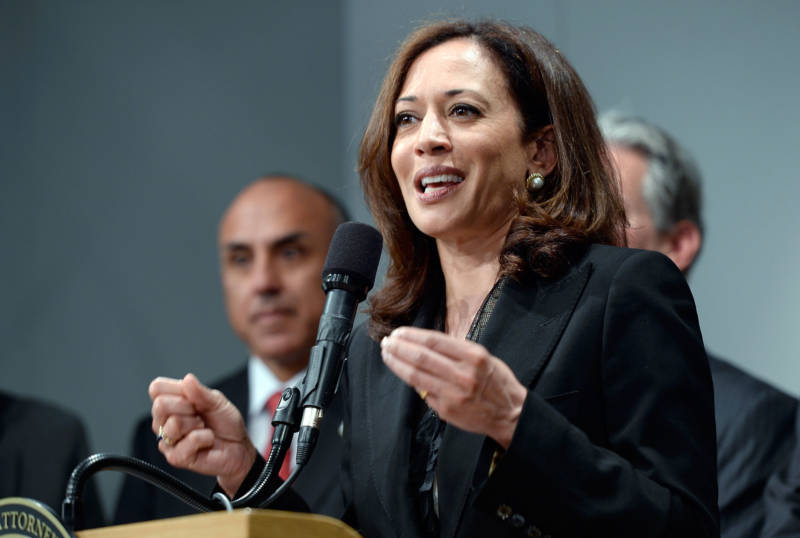Both Harris and Sanchez are Democrats. This is the first time two members of the same party have faced each other in a statewide runoff since California adopted the top-two primary. They are running to replace another Democrat, retiring U.S. Sen. Barbara Boxer.
The poll also asked registered voters' opinions of Proposition 64 -- the November ballot initiative that would legalize recreational marijuana. It found 71 percent in favor of legalization, with 26 percent opposed.

But support for marijuana legalization could decrease somewhat as initiative campaigns begin in earnest. Nalder says a majority of Californians initially supported legalization in 2010, but voters turned against details in Proposition 19.
“People thought it wasn’t prudent in a lot of ways. And so even though there were a number of voters who were generically in favor of legalizing marijuana, they voted against it,” says Nalder. “I suspect [this year] most voters haven’t gotten out their ballot guide yet and done their homework, and so it could change if they don’t like some of the details in this one.”
[Prop64Poll]
California Counts Survey_Part 1 by Southern California Public Radio on Scribd
Correction: Our original story stated that the poll sought to capture the sentiments of all Californians rather than likely or registered voters. We based that statement on information provided by the Institute for Social Research at Sacramento State, which conducted the survey. While most of the poll's questions were asked of a representative sample of Californians, the poll's author later informed us that only the responses of registered voters were used for questions about the November election, including the U.S. Senate race and Proposition 64. We have updated our story and apologize for the error.
Editor's Note: This story has been updated to include additional information regarding the methodology of the survey.
California Counts, a statewide public media election collaborative, contracted with the CALSPEAKS Opinion Research Center at the Institute for Social Research, Sacramento State University, to conduct an extensive survey of Californians’ electoral and public policy attitudes.
The Institute for Social Research at Sacramento State fielded the survey online and through the mail from Aug. 15 to 24, 2016 using the CALSPEAKS survey panel. It yielded 915 completed surveys and 44 partially completed surveys. CALSPEAKS obtains a representative sample of Californians, stratified by the five major regions in the state. For information on the methodology, please visit: http://www.csus.edu/isr/calspeaks/. For questions about the November election, (the U.S. Senate race and propositions 57, 63 and 64), results reflect registered voters only.
The margin of error for any individual survey question is equal to or less than +/- 4 percentage points for the overall sample. However, the margins of error are larger if focusing on smaller subgroups, especially racial or ethnic subgroups. These are equal or less than +/- 16 percentage points for African-Americans, and 10 percentage points for Latinos or those of "other races/ethnicities" (including Asian-Americans, Pacific Islanders, Native Americans, and those of mixed race/ethnicity). The numbers, however, have been weighted to reflect California¹s population and are valid for comparisons across the sub-groups.
California Counts is a collaboration with four public media organizations in California to cover the 2016 election. This includes KPCC in Los Angeles, KQED in San Francisco, Capital Public Radio in Sacramento and KPBS in San Diego.


